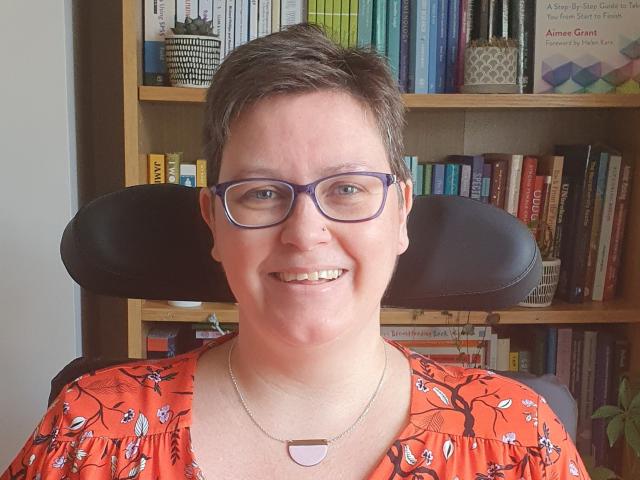
To transform autism research, ask autistic people - Dr Aimee Grant
17 April
“Think about autism for a second.”
This was how Dr Aimee Grant, opened her powerful TED-style talk at the 2024 Health and Care Research Wales conference.
April is Autism Acceptance Month, an opportunity for everyone to come together and foster acceptance to create a society where autistic people are supported, understood, and empowered.
She continued: “Many of the people in the room here today might be thinking of a child, probably a young child, a boy and a white boy at that.”
But this, Dr Grant added, is a common misconception as there is no meaningful data to suggest “gender or racial variation” in autism.
“It’s all down to historical diagnostic practices,” said Dr Grant, Senior Lecturer and Wellcome Trust Career Development Fellow at Swansea University.
This is something Dr Grant is trying to change with her pioneering research.
Autism is a lifelong neurodevelopmental disability which affects how people communicate and interact with the world. Around 3% of people are Autistic, according to the American Centre for Disease Control.
Dr Grant’s journey into autism research is deeply personal, after a decade of researching marginalised pregnancy and early motherhood she was diagnosed as Autistic in 2019.
Her experience with an ectopic pregnancy during the pandemic, highlighted how healthcare services often failed to meet the needs of autistic individuals.
Dr Grant said: “I am extremely grateful that they gave me the emergency surgery and saved my life. But the care I received really didn't meet my needs.”
This revelation drove her to merge her expertise in maternity care with a focus on autism research.
Dr Grant is now leading a £2.4M Wellcome Trust-funded project, exploring how autistic women and those assigned female at birth experience reproductive health and healthcare.
Involve underserved groups for “research to benefit the public”
The study, which is running until 2030, has recruited and interview 100 autistic people from underserved communities. The participants will each be interviewed up to ten times over the next five years.
It is inclusive and autistic-led, meaning that along with Dr Grant, there are four autistic postdoctoral researchers, and it is co-governed by an autistic community council of lay members.
The council is directly involved in designing the research and ensuring that everything, from the environment to the patient-facing materials are accessible.
Dr Grant credits this approach for the study’s early success and said: “So far, we haven't had anybody drop out of the study. Drop-out rates in autism research are often really high.”
There is a hope that this will help contribute to more research into autism in adults and those who are assigned female at birth – as 98% of autism research funding is focused on children, according to Dr Grant.
In her closing remarks, Dr Grant encouraged all researchers to prioritise involving lay people in their work, not just in autism, but in any health condition.
Dr Grant said: “If you want your research to benefit the public you're aiming at, you cannot afford not to hear from the most under-served in those groups.
“And I would ask you all to go one step further and to involve them as partners.”
Watch Dr Aimee Grant’s TED-style talk at our 2024 conference in the importance of the inclusive research and public involvement.
Sign up to our weekly newsletter and keep up with the latest research news, funding opportunities and other useful information.